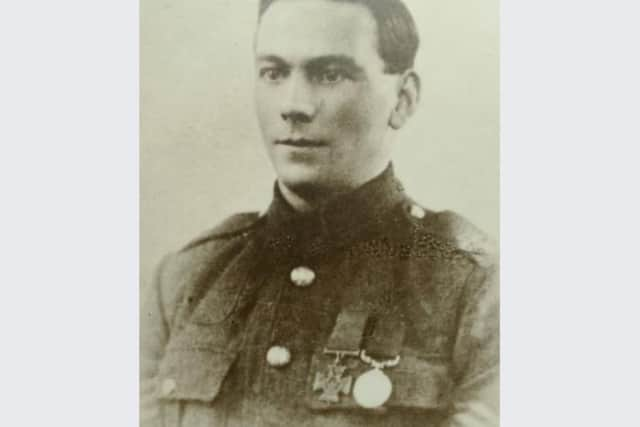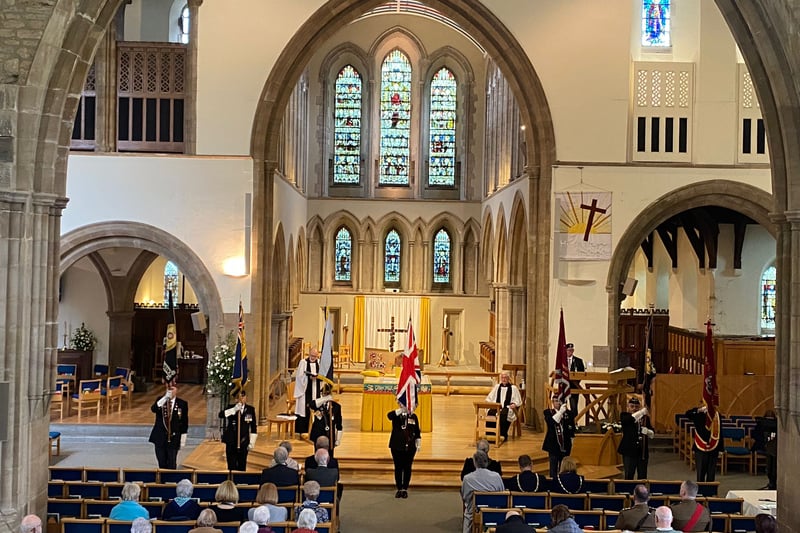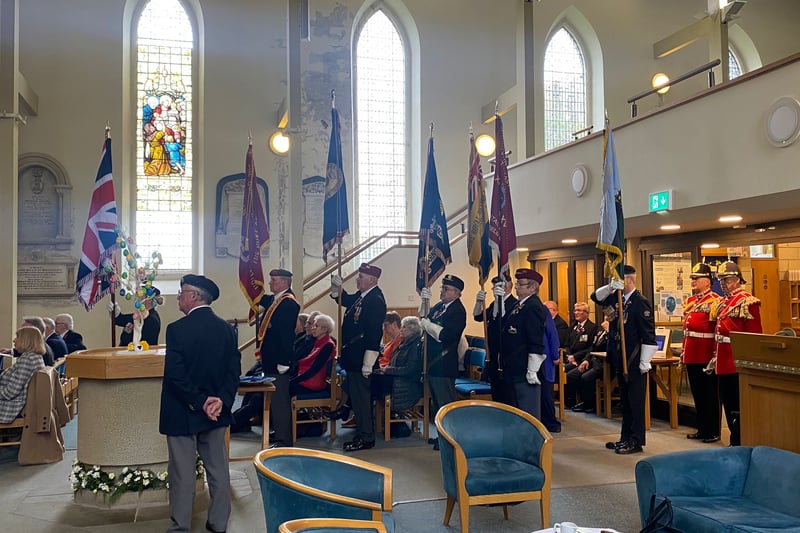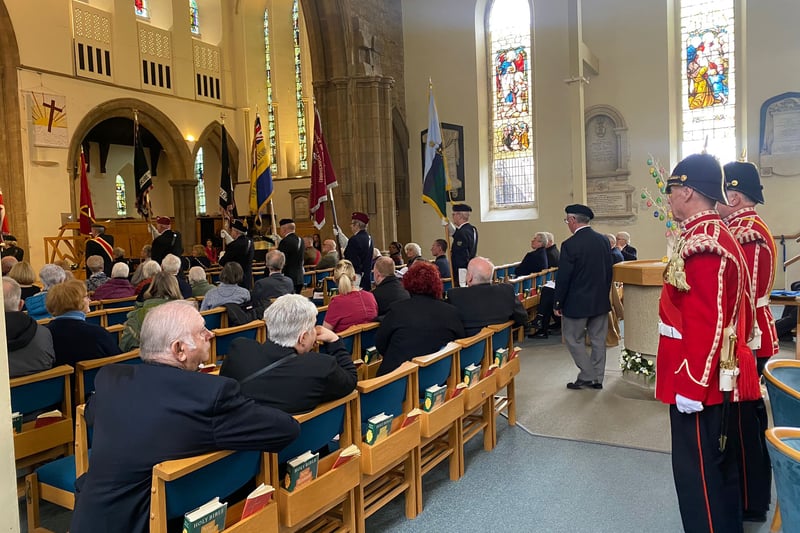A Sheffield war hero, described as “the bravest of the brave” has been remembered with a public service to commemorate his rare gallantry, WRITES ALASTAIR ULKE AND EMILY HAWTIN.
Sergeant Arnold Loosemore, from Sharrow, was awarded both the Victoria Cross and Distinguished Conduct Medal for his actions during the First World War, a very rare combination. Not only did he rescue a wounded comrade while under heavy fire, he also singlehandedly fought off and killed 20 enemy soldiers during the same counterattack.
His life was remembered on Wednesday (April 11) at a service marking 100 years to the day since his passing, held at All Saints Church in Ecclesall, Sheffield.
Assistant minister, Godfrey Smallman of All Saints Church said: "He was a son of Sheffield.
“This is an opportunity for us to honour someone who is buried here in the graveyard and gave great service, who died young, and who was a man of courage."
The Victoria Cross is Britain’s highest military decoration, with recipients revered as heroes and their deeds becoming military legend.
Sergeant Loosemore’s incredible act of bravery that earned him the medal was carried out in 1917 amid the Third Battle of Ypres, near Langemarck in Belgium.
After two members of his section were killed beside him, he fought on with every means at his disposal - machine-gun, bomb, rifle and revolver. He successfully repelled a fierce counter attack, killing about 20 of the enemy, including snipers. And he still had the strength to carry a wounded comrade back to his post under heavy fire.
Just a day earlier, it is said he shot down a German plane engaged in a dogfight with a British aircraft, likely saving the British pilot’s life.
His courage was later recognised again with the Distinguished Conduct Medal following an Allied raid the following year in which a machine gun and 11 prisoners were captured.
Pat Davey, Chairperson of the Sheffield and District Joint Council of Ex-Service Associations said: "If it wasn't for people like Loosemore none of us would be around today.
“We’re honouring a very brave man, he was one of the bravest of the brave, and he lived to fight another day.”
Despite his rare ability to survive danger in a war zone, Sergeant Loosemore succumbed to tuberculosis six years after the war ended, albeit arising from machine gun wounds sustained during combat.
He was buried with full military honours, with crowds lining the procession route from Hillsborough to Ecclesall - which had echoes of the crowd of thousands who gathered to cheer him from the town hall steps after his VC civic reception - and the funeral service conducted by the Lord Bishop of Sheffield.

1. Sgt. Arnold Loosemoore VC DCM
Sgt. Arnold Loosemoore, a gardener from Sharrow who was awarded the Victoria Cross for acts of courage during the First World War died on April 10, 1924, making today the centenary of his death. His distinguished service, tragic death, and the atrocious treatment of his wife and family by local authorities after his death have made him a celebrated figure in Sheffield's military history.

2. Memorial service
A memorial service and parade was held at the All Saints Church Ecclesall to mark 100 years since Sgt Loosemoore's death. Photo: National World

3. Standard bearers
A parade with standard bearers and members of several South Yorkshire veteran and ex-forces organisations was organised with a plan to march to Sgt Loosemoore's grave, but poor weather moved the ceremony indoors. Photo: National World

4. Last Post
Two buglers played the Last Post and a minute's silence was held as part of the service. Photo: National World
